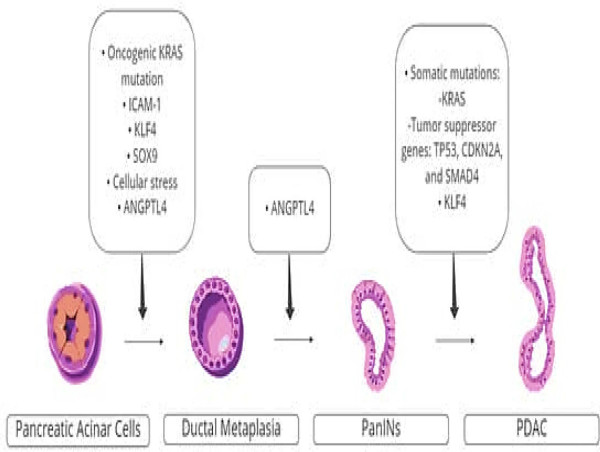AI models have the potential not only to spot pancreatic cancer at an early stage, but also to predict the deadly disease’s prognosis, say scientists
SHARJAH, EMIRATE OF SHARJAH, UNITED ARAB EMIRATES, June 30, 2025 /EINPresswire.com/ -- Oncologists utilizing Artificial Intelligence (AI) in their tests to spot pancreatic cancer at an early stage can also gain an overall picture of how the deadly disease is bound to develop, scientists from the University of Sharjah have revealed in a new study.
Although still at its initial stage, the AI-enabled prognosis, the scientists say, has the potential to pave the way for the provision of individualized healthcare and treatment of pancreatic cancer patients.
The scientists, who describe their findings in Beni-Suef University Journal of Basic and Applied Sciences, arrived at the groundbreaking conclusion following a comprehensive review of pancreatic cancer-related scientific literature. https://doi.org/10.1186/s43088-025-00610-4
Due to its high mortality rate, pancreatic cancer poses a serious health concern, with 467,409 deaths reported worldwide in 2022 and 510,992 new cases. Researchers often refer to pancreatic cancer as the ‘king’ of all cancers due to the exceptional ability of its cancerous cells to quickly spread to other parts of the body if not detected at an early stage.
“Nevertheless, due to several factors, including the lack of distinct molecular markers and clinical symptoms, the disease tends to be detected at an advanced stage, rendering surgical interventions futile,” the authors warn. ”For this reason, early detection and precise stratification of pancreatic cancer stages are crucial for enhancing therapeutic outcomes.”
In their study, the scientists provide what they claim to be “a concise overview” of how AI is used in the diagnosis, prognosis, and treatment of pancreatic cancer.
“Utilizing AI for preliminary testing can significantly enhance the prognosis of those who have been diagnosed with pancreatic cancer,” they write. “Advances in AI-driven image analysis have the potential to transform computer-aided diagnostic systems, aiding doctors in establishing precise and reliable assessments.”
The researchers’ extensive review of the literature dwells on numerous aspects of AI and its multiple uses in handling cases of pancreatic cancer.
One important aspect for the scientists is multicomics, which requires the combination and analysis of different data types, along with professionals and scientists, to acquire a thorough and deep understanding of a complex and deadly disease like pancreatic cancer.
They note that “it is crucial to recognize the significance of AI in multiomics domains. The healthcare industry is at the forefront of a new era, driven by technological and scientific improvements, facilitated by the integration of AI in healthcare.
“This progress can only be made through the efforts of clinicians, scientists, data analysts, and technicians. Although computer systems have several limits, they are anticipated to contribute to substantial breakthroughs soon, owing to their amazing processing powers.”
The authors endow AI models with a high ability to spot pancreatic tumors at their earliest stages, helping doctors to correctly assess the risks for patients, and then provide the associated healthcare and draw plans for long-term treatment.
They call for a better grasp and control of these models, as they are not easy to operate and understand. They show that the plethora of AI-based solutions about pancreatic cancer detection, prognosis, and treatment have “made clinical use a bit sophisticated, whereby without understanding and clear interpretation, doctors cannot critically evaluate the output of these algorithms in terms of their applicability and reliability.”
Despite the sophistication associated with AI applications, the authors report that researchers have been exerting considerable efforts to develop a variety of approaches to make them accessible to healthcare professionals and at the same time gain the confidence of patients about their effectiveness.
They predict a promising future for upcoming AI tools, which they believe can be employed with much less sophistication due to the emergence of a new frontier in artificial intelligence called explainable AI that will make the tools easily accessible for clinical adoption.
They reveal that cancer researchers are “creating and applying explainable AI methods, including feature relevance ratings, infographics, and natural language explanations to interpret AI predictions.”
They highly commend the new Machine Learning models to identify pancreatic cancer at an early stage, with implications for a significant reduction in the morbidity and mortality rates.
The application of methods employing the Internet of Things have recently caught the attention of oncological researchers who, according to the authors, are expected to revolutionize pancreatic cancer detection, prognosis, and treatment.
“AI ought to help oncologists create personalized treatment regimens by combining patient-specific data. It is being utilized to predict how patients react to therapies like immunotherapy, chemotherapy, radiation therapy, and surgery,” they write.
In their recommendations, the authors call for more AI-based pancreatic cancer research to eventually build “semi-autonomous models that reduce clinician stress, boost productivity, or be fully autonomous.”
LEON BARKHO
University Of Sharjah
+971 501654376
email us here
Legal Disclaimer:
EIN Presswire provides this news content "as is" without warranty of any kind. We do not accept any responsibility or liability for the accuracy, content, images, videos, licenses, completeness, legality, or reliability of the information contained in this article. If you have any complaints or copyright issues related to this article, kindly contact the author above.
![]()




